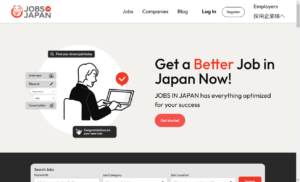
I hate to admit this, but my life is so much easier now that I have fewer employees. When I was running a division or a team, a failed hire was an inconvenience; however, it wasn’t until I owned a company when I learned how costly hiring mistakes are.
It’s not only the time lost going through the hiring process, identifying the “right” person, wasting my and my staff’s time training this person, and then paying their salary. The worst part is that I was not closer to solving my business problems that I hired them to solve in the first place, and now I am further behind schedule.
Most employers are pretty good at picking up the obvious signals at the first interview that the applicant is not going to be a good fit. We’ve all seen candidates who have unsuitable appearance like choice of clothes, or poor hygiene,, or they speak poorly about a former employer, they are unprepared, or showed up late for the interview. But here are some more things from my experience in recruitment to check for that could save you from hiring a good liar, but a terrible employee.
No questions prepared, or they ask odd questions
There is a reason why everyone ends with this question. If the candidate has no questions, I wonder if the person has thought about my job at all, or if they just want any job.. The prepared, passionate and interested candidate will probably have quite a few questions whereas the less ambitious ones will have less.
If the questions are about how they will fit into the position, the team, culture, that is good. If it is about pay, holidays, you now have a very good understanding of what motivates this person. If all they ask are about what they get rather than what they can contribute or learn, they are probably not motivated by anything you have to offer other than the paycheck, visa and vacation time.
Candidates who ask no questions at all may be less ambitious. They may be unwilling to dig deep to find solutions and take on new tasks.
If there are few questions, you may want to throw out a few more questions to see if the person actually understands the role. Perhaps you did not explain things clearly or the person could not follow well and does not want to ask basic questions.
Up-front demands
There is a shortage of workers in Japan and some candidates try to flip the power dynamic. It is true that it is easier to negotiate for many things before you get hired than after, but some candidates try to take this to the next level.
If an applicant starts laying out demands in the first interview like needing to work a special schedule, higher payment because of their credentials, and accommodations for personal reasons, there is a higher chance that they will be high-maintenance, impossible to manage and never satisfied. There is a difference between selfish demands and requested or negotiated considerations.
This cover letter gem (actual cover letter shared by an employer) is an entertaining example of someone trying to make premature demands. Oh, and he was not called in for an interview.
“Before continuing, I wanted to clarify that for the advertised position, I would need to know a potential hiring result by the end of this month in order to honor my current work commitments and move to the metro Tokyo area. Also, the salary would need to be more than 400,000 yen monthly to consider leaving my current work.”
Independently Employed / Consultants
Whenever I see this on a resume, my lie detector goes on high alert as this is a very easy way to hide a brief failed job whether it be getting fired or quitting. Instead of explaining the short employment tenure, it is so much easier to mention you were self-employed.
There are a lot of self-employed people out there that want a stable job, so there is a chance the person is telling the truth. These people have an entrepreneurial spirit and better understand the issues of a company owner, if this is the actual case.
Without showing doubt, just be curious and ask questions about their experience, clients, etc. You’ll soon know if he/she is telling the truth.
If the person is under 35 years of age, he or she probably does not have the experience or previous success to be a consultant between jobs, unless you need help with your social media or an Instagram campaign. And if you are in my industry, any successful consultant would have a network big enough to overlap with mine thus they would have been introduced to me by a mutual contact.
Answering questions vaguely or with fluff
In the interview you will be asking questions such as how the person overcame difficult work obstacles, various work achievements, handling conflict, and how they dealt with other challenges.
If the person is not able to bring up specific examples or a fluff answer like “I did have these issues as I was able to solve them before they became problems” or something like that, the person is lying, has not prepared, does not have real world experience, or most likely is over-inflating their skills to appear more qualified.
It is hard to admit that your career has stagnated for years and did not grow at all, but you see this kind of candidate frequently if they have been coasting at an easy job for a long time.
Job hops, Inconsistent career path, reasons for leaving
These questions would probably disqualify me from working at your company. I’ve had over a dozen jobs in a number of industries.
What I am concerned about is that the job hops may not have been in place or position long enough to gain seniority or follow through with major projects.
Go through the candidate’s career history and find out why they had left each position. I had a very hard problem with Japan’s “nenko joretu” (seniority-wage system) and slow promotions. There is a difference between someone that gets bored, can’t take responsibility, and someone who is ambitious that needs to be challenged.
As the saying goes “the best prediction of future behavior is past behavior.” Even at the companies that I only stayed at a short while all measurably benefitted from my working there.
No one item can tell you if the candidate is a poor fit, but if you see a few of these little cues, I would be concerned.
Please share any tips you have so we can all help each other hire the best candidates possible.















